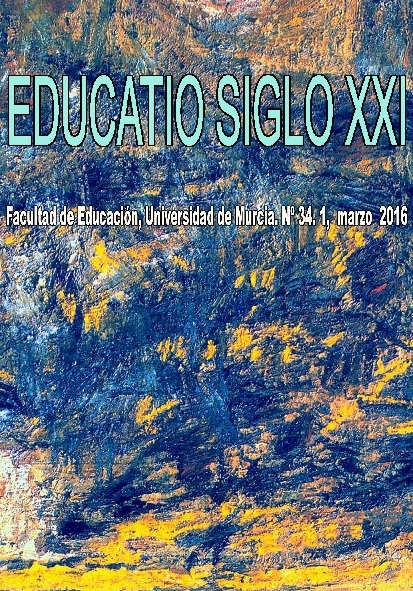Análisis de la influencia de la orientación profesional en los jóvenes en situación de abandono escolar
Resumen
El objetivo principal de la investigación es conocer la importancia que tiene la orientación profesional para los jóvenes que retornan a la Educación Secundaria Obligatoria a través de los Centros de Educación de Personas Adultas, como herramienta indispensable que ha de estar presente en los momentos más críticos del estudiante atendiendo sus necesidades a nivel formativo, educativo y profesional, teniendo en cuenta los intereses, capacidades y necesidades de cada momento, así como la situación actual del mercado de trabajo, donde los jóvenes pasan con mayor rapidez entre situaciones de empleo y desempleo que en décadas anteriores. La Metodología de Investigación se desarrolla a través de un análisis factorial exploratorio, realizado de acuerdo al procedimiento de los componentes principales, analizando una muestra total de 878 estudiantes matriculados en los cuatro cursos de Educación Secundaria Obligatoria en los Centros de Educación de Personas Adultas de la provincia de Ciudad Real, datos recogidos a través de la cumplimentación de un cuestionario diseñado para tal efecto y donde losresultados de la investigación indican que el 84% de los alumnos encuestados opina que se necesita una orientación a lo largo de la vida para estar informado y motivado en todo momento, y el 75.6% considera que la orientación profesional es un instrumento que ayuda a la inserción profesional de los jóvenes. Tanto los que han acudido a un orientador profesional como los que no lo han hecho, confirman la importancia de la orientación: el 57.4% reconoce que no habría abandonado los estudios si hubiera recibido una adecuada orientación profesional
y el 61.6% confirma que cuando finalice la Educación Secundaria Obligatoria acudirá a un orientador profesional para que le ayude en la búsqueda de empleo y el 74.7% para que le informe tanto de formación reglada como no reglada.
Descargas
-
Resumen7344
-
Sin título2278
Las obras que se publican en esta revista están sujetas a los siguientes términos:
1. El Servicio de Publicaciones de la Universidad de Murcia (la editorial) conserva los derechos patrimoniales (copyright) de las obras publicadas, y favorece y permite la reutilización de las mismas bajo la licencia de uso indicada en el punto 2.
2. Las obras se publican en la edición electrónica de la revista bajo una licencia Creative Commons Reconocimiento-NoComercial-SinObraDerivada 4.0 Internacional (texto legal). Se pueden copiar, usar, difundir, transmitir y exponer públicamente, siempre que: i) se cite la autoría y la fuente original de su publicación (revista, editorial y URL de la obra); ii) no se usen para fines comerciales; iii) se mencione la existencia y especificaciones de esta licencia de uso.
3. Condiciones de auto-archivo. Se permite y se anima a los autores a difundir electrónicamente las versiones pre-print (versión antes de ser evaluada) y/o post-print (versión evaluada y aceptada para su publicación) de sus obras antes de su publicación, ya que favorece su circulación y difusión más temprana y con ello un posible aumento en su citación y alcance entre la comunidad académica. Color RoMEO: verde.











